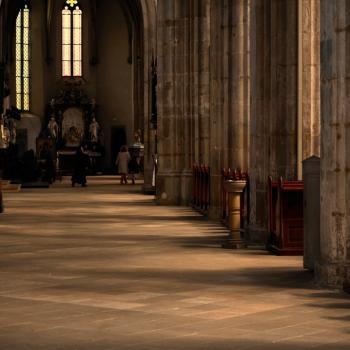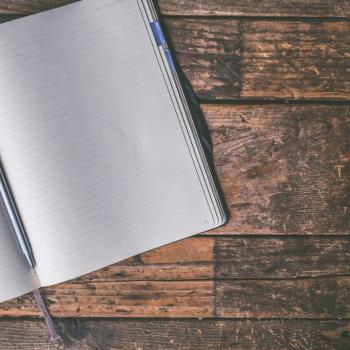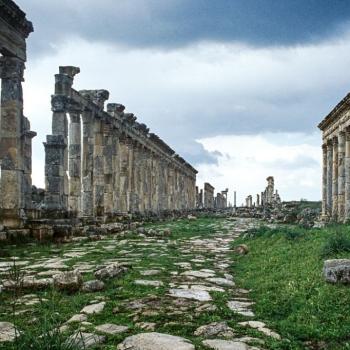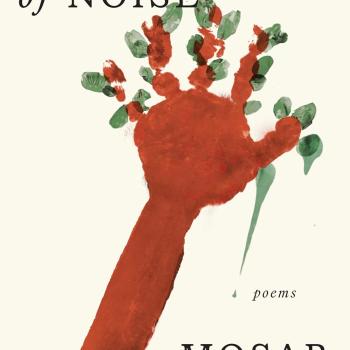I recently came across an interesting post which linked to the original article about an interesting poem. Ahmad Al-Jallad (2015) shared an extensive analysis of what seems to be the oldest Arabic poem, which describes a battle between the Gods Mot and Ba’al. Although it seems to be simple at first sight, when I read it and learned about the deities it references I had the feeling it was more than just a poem, or at least it could be used as more than that.
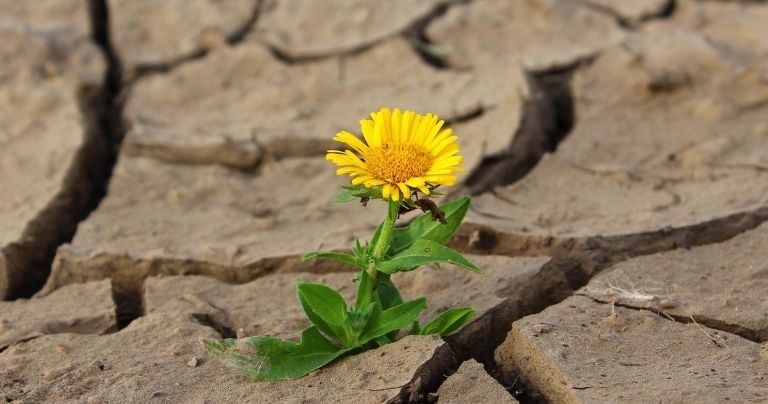
The text, found in Israel, “in the desert 4.5 kmfrom Oboda/Avdat in the Negev, is undated” (Al-Jallad, 2015, p: 5), in a stone, “which express three verses of a votive poem dedicated to the deified Nabataean king, ʿObodah. The interpretation of this text has not been easy, and there remains no consensus as to what exactly it means. Nevertheless, its rhetorical language and poetic register are clear” (Al-Jallad, 2015, p: 6):
l ḥg mt w lẓ ṯrm
f mykn ẖlf lyly -h w ʾwm -h
w h ʾ-bʿl ybt w l h bt w m nm
For pronunciation purposes, the anonymous blog Old European culture (OEC) shared the following version:
ḥagga mōtu wal-lāẓẓu ṯarām
fa-muyakānu layālay-uh wa-ʾaywām-uh
wa-hāʾ baʿalu yabītu wa-lā-hu bāta wa-mā nām
Which translates at:
Mōt has celebrated a feast; the scorner eats
established is the succession of his nights and days
and behold, Baal is cut off; cut off indeed, but not dead
For a full understanding of this poem, it’s useful to read their descriptions in the Encyclopædia Britannica:
Mot, (West Semitic: “Death”) ancient West Semitic god of the dead and of all the powers that opposed life and fertility. He was the favourite son of the god El, and the most prominent enemy of the god Baal, a god of springs, sky, and fertility. Mot was the god of sterility and the master of all barren places. Traditionally, Mot and Baal were perpetually engaged in a seasonal struggle in which Baal, like many similar harvest deities, was annually vanquished and slain. Mot, however, was also annually killed by Baal’s sister Anath, who thus aided Baal’s resurrection.
Baal, god worshipped in many ancient Middle Eastern communities, especially among the Canaanites, who apparently considered him a fertility deity and one of the most important gods in the pantheon. As a Semitic common noun baal (Hebrew baʿal) meant “owner” or “lord,” although it could be used more generally; for example, a baal of wings was a winged creature, and, in the plural, baalim of arrows indicated archers. Yet such fluidity in the use of the term baal did not prevent it from being attached to a god of distinct character. As such, Baal designated the universal god of fertility, and in that capacity his title was Prince, Lord of the Earth. He was also called the Lord of Rain and Dew, the two forms of moisture that were indispensable for fertile soil in Canaan. In Ugaritic and Hebrew, Baal’s epithet as the storm god was He Who Rides on the Clouds. In Phoenician he was called Baal Shamen, Lord of the Heavens. (…) But Baal was not exclusively a fertility god. He was also king of the gods, and, to achieve that position, he was portrayed as seizing the divine kingship from Yamm, the sea god.
Although we get an interesting interpretation on how the attributes of these Gods are related to those of Allah in the Qur’an, and which you can read with more ease in the OEC blog, I find it curious that this poem tells a story in which the fertility God has seemly been conquered by the death god, with the hope He will come back at some point.
For me, it is a poem about hope, remaining positive, and calling on our higher selves, divine spark, or whatever you want to call it, to come upon us and help us when we need it the most. I’ve lost count of how many times I’ve felt helpless, hopeless, forgotten, and desperate for some assistance. This poem reflects that exact feeling, and ends giving the reader the idea that not everything is lost already, that there’s still something that could happen in the meantime.
Also, all humans are scared of death, of changes, we are scared of the unknown and what could happen after this or that. When afraid, it seems like everything is lost already and that we should just accept things the way they are, but here we get some hope, a silver lining that there’s more to be done. In this sense, it also speaks about fears, trauma, wounds, and every kind of damage and pain that could be done to us in a big way.
If you ask me, this can be a perfect prayer or incantation about accepting something bad is happening or just happened, that we are bad, desperate, afraid, needy, but we still refuse to accept there’s nothing we can do, that we still hope things will change for the better and the tables will turn in our favor.
I’ve been through some hard times this year, I’ve been in the past as well, and although I wanted to give up and accept whatever happened, I refused. This poem reflects that feeling perfectly, it gives the impression that someone is asking for some kind of intervention, and I plan to use it with at such when the time comes (hopefully, not soon).
References:
- Al-Jallad, A. (2015). Echoes of the Baal Cycle in a Safaito-Hismaic inscription. Journal of ancient near eastern religions, 15(1), 5-19.
- Britannica, T. Editors of Encyclopaedia (2021, May 23). Baal. Encyclopedia Britannica. https://www.britannica.com/topic/Baal-ancient-deity
- Britannica, T. Editors of Encyclopaedia (2012, May 28). Mot. Encyclopedia Britannica. https://www.britannica.com/topic/Mot









